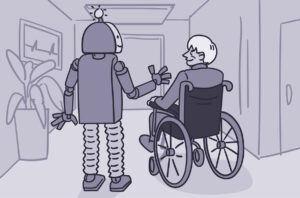-
- Nursing care of the family
- Supporting family members
- Supporting Siblings During Hospitalization
- Trade off staying at the hospital with spouse or have a surrogate who knows the siblings well stay in the home.
- Offer information about the child’s condition to young siblings as well as older siblings; respect the sibling who avoids information as a means of coping with the situation.
- Arrange for children to visit their brother or sister in the hospital if possible.
- Encourage phone visits and mail between brothers and sisters; provide children with phone numbers, writing supplies, and stamps.
- Help each sibling identify an extended family member or friend to be their support person and provide extra attention during parental absence.
- Make or buy inexpensive toys or trinkets for siblings, one gift for each day the child will be hospitalized.
- Wrap each gift separately, and place them in a basket, box, or other container at the child’s bedside.
- Instruct siblings to open one gift at bedtime and to remember that he or she is in their parent’s thoughts.
- If the child’s condition is stable and distance is not prohibitive, plan a special time at home with the siblings or have spouse or another relative or friend bring the children to meet parent(s) at a restaurant or other location near the hospital.
- Have extended family members or friends schedule a visit to the child in the hospital during parental absence.
- Arrange a pass for the child to leave the hospital to join the family if the child’s condition permits.
- Providing information
- The disease, its treatment, prognosis, and home care
- The child’s emotional and physical reactions to illness and hospitalization
- The probable emotional reactions of family members to the crisis.
- Encouraging parent participation
- Preparing for discharge and home care
- In planning appropriate teaching, nurses need to assess
- The actual and perceived complexity of the skill
- The parents’ or child’s ability to learn the skill
- The parents’ or child’s previous or present experience with such procedures.
- In planning appropriate teaching, nurses need to assess
- Supporting family members
- Nursing care of the family

Flu and People with Diabetes
r Everyone MAR. 20, 2024 PREVENTION AND CONTROL OF SEASONAL INFLUENZA WITH VACCINES: RECOMMENDATIONS OF THE ADVISORY COMMITTEE ON IMMUNIZATION PRACTICES — UNITED STATES, 2025-2026



